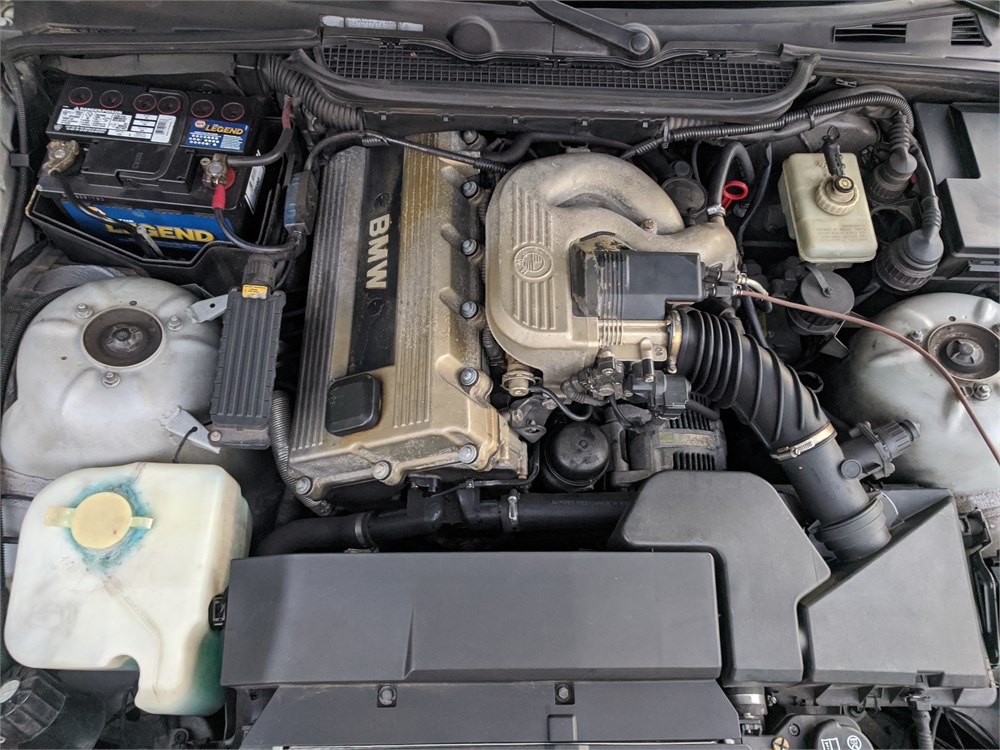Vital Considerations for Choosing the most effective Engine for Your Needs
In the world of picking the ideal engine to satisfy your needs, a number of essential variables need meticulous factor to consider to make certain optimum efficiency and effectiveness. From the nuanced equilibrium in between power and efficiency to the often-overlooked facets of maintenance and solution requirements, each aspect plays an essential duty in determining the most suitable engine for your specific needs.
Power and Performance
When evaluating engines for optimal performance, it is essential to prioritize both power output and effectiveness. Power outcome determines the capability of an engine to generate power, which straight affects its performance. A high power output is vital for demanding tasks such as high-speed needs or sturdy applications. It makes certain that the engine can take care of the workload effectively and successfully. Power alone is not enough; effectiveness plays a significant role in establishing the general performance of an engine. Performance describes exactly how well the engine converts gas right into usable power. A a lot more efficient engine will supply much better mileage, reduced emissions, and lowered operating expense. Striking the right equilibrium between power output and effectiveness is essential to picking an engine that satisfies your particular needs. When making this choice, it is vital to consider aspects such as the intended use of the engine, environmental influence, and long-term expense implications. By very carefully evaluating both power and effectiveness, you can pick an engine that provides optimal performance and fulfills your needs efficiently.
Gas Efficiency and Economic Climate
Gas effectiveness refers to the engine's capacity to convert fuel right into power with minimal waste, straight impacting operating expenses and environmental sustainability. Engines with greater gas performance not just decrease fuel costs however likewise decrease carbon exhausts, contributing to a greener procedure.

Compatibility and Application
Considering the fuel effectiveness and economy of an engine, the next critical aspect to address is its compatibility and application within details operational contexts. Compatibility refers to just how well the engine integrates with the overall system or tools it powers.
Additionally, the application of the engine is similarly essential. Different engines are developed for details objectives, whether it be industrial equipment, marine vessels, cars, or power generators. Recognizing the intended application enables the choice of an engine that can supply the needed power result, torque, and operational qualities. For circumstances, a high-revving engine created for efficiency cars would certainly not appropriate for heavy-duty building tools that needs high torque at reduced rates.
Upkeep and Service Demands
Maintenance and service requirements play a crucial role in making sure the long life and ideal performance of an engine. Regular upkeep is necessary to stop break downs, extend the life-span of the engine, and keep its performance. When picking an Read Full Article engine, it is vital to consider the producer's suggested upkeep routine and the availability of service facilities or certified service technicians.
Variables such as the regularity of oil changes, filter substitutes, and general inspections can considerably influence the engine's efficiency. Some engines may call for even more regular maintenance based upon their layout and usage, while others may have longer intervals in between maintenance checks. It is important to comply with these solution demands to stay clear of costly repair services and unexpected downtime.
Cost and Budget Plan Considerations
When choosing an engine for a specific application,Spending plan restraints typically play a considerable role in the decision-making procedure. When considering the cost and budget plan effects of choosing an engine, it is important to evaluate not only the initial acquisition price but also the lasting costs linked with maintenance, gas usage, and potential upgrades or repair services. It is crucial to strike an equilibrium in between the ahead of time price of the engine and its overall lifecycle prices to guarantee that the selected engine stays economically sustainable throughout its functional life-span.
Aspects such as fuel reliability, longevity, and efficiency can straight affect the complete cost of ownership of an engine. While an extra expensive engine might have higher upfront costs, it could potentially result in lower maintenance and fuel expenses over time, hence providing much better value over time. Furthermore, taking into consideration the more information availability and price of spare parts, as well as the simplicity of upkeep and solution, can aid prevent unexpected economic strain in the future. By carefully examining these price and spending plan factors to consider, you can make an educated decision that lines up with your operational needs and economic restraints.
Conclusion

Gas effectiveness refers to the engine's capability to convert fuel into energy with very little waste, Go Here straight impacting operating prices and ecological sustainability.Variables influencing fuel efficiency include engine layout, burning efficiency, and total efficiency optimization. Furthermore, selecting the appropriate gas kind and grade as suggested by the engine producer can further improve effectiveness and extend engine life-span.
Engines with great service attributes and conveniently offered parts can minimize upkeep expenses and lessen the time the engine is out of operation - bmw 318ti. It is vital to strike an equilibrium in between the in advance expense of the engine and its total lifecycle prices to make certain that the selected engine stays monetarily sustainable throughout its functional life expectancy